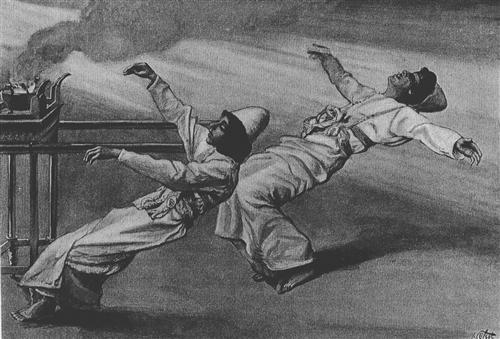
I start a course in a few weeks on the books of Leviticus, Numbers and Deuteronomy—the Pentateuch books everyone ignores, including me until this year. I thought I should re-read these books and so for the past week or so I’ve been moving through Leviticus and have enjoyed learning about the various sacrifices. Everything was great until I got to the story of Nadab and Abihu, the sons of Aaron.
Now Nadab and Abihu, the sons of Aaron, each took his censer and put fire in it and laid incense on it and offered unauthorized fire before the LORD, which he had not commanded them. 2 And fire came out from before the LORD and consumed them, and they died before the LORD. 3 Then Moses said to Aaron, “This is what the LORD has said, ‘Among those who are near me I will be sanctified, and before all the people I will be glorified.'” And Aaron held his peace. (Lev. 10:1-3).
I can read what the text says, that they offered “unauthorized fire” so God consumed them, but it still seems unfair. People do wrong things all the time, but God doesn’t usually fry them. It sounds similar to what happened to poor Uzzah, who was smitten by God for trying to stabilize the ark (2 Sam. 6).
It appears that Nadab and Abihu were trying to do the right thing, but God was really picky, so he zapped them. This is the sort of thing that gives the God of the Old Testament a bad reputation. If you’re thinking, “Somebody should write a book about that”—I agree. And I talk about the smiting of Uzzah in God Behaving Badly (pages 27-33), but I skip over the story about Nadab and Abihu in Leviticus 10.
In my blog I usually attempt to answer, or at least address, these types of questions, but this time I’m just going to ask the question and see what you all can come up with.
What do you think—why’d God kill them? What was so bad about “unauthorized fire” (also called “unholy fire”). Did their action really deserve sudden and immediate death? When you teach on this passage, what do you say?
